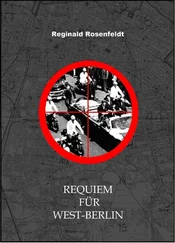Isaiah Berlin - Russian Thinkers
Здесь есть возможность читать онлайн «Isaiah Berlin - Russian Thinkers» весь текст электронной книги совершенно бесплатно (целиком полную версию без сокращений). В некоторых случаях можно слушать аудио, скачать через торрент в формате fb2 и присутствует краткое содержание. Год выпуска: 0101, Жанр: Старинная литература, на русском языке. Описание произведения, (предисловие) а так же отзывы посетителей доступны на портале библиотеки ЛибКат.
- Название:Russian Thinkers
- Автор:
- Жанр:
- Год:0101
- ISBN:нет данных
- Рейтинг книги:3 / 5. Голосов: 1
-
Избранное:Добавить в избранное
- Отзывы:
-
Ваша оценка:
- 60
- 1
- 2
- 3
- 4
- 5
Russian Thinkers: краткое содержание, описание и аннотация
Предлагаем к чтению аннотацию, описание, краткое содержание или предисловие (зависит от того, что написал сам автор книги «Russian Thinkers»). Если вы не нашли необходимую информацию о книге — напишите в комментариях, мы постараемся отыскать её.
Russian Thinkers — читать онлайн бесплатно полную книгу (весь текст) целиком
Ниже представлен текст книги, разбитый по страницам. Система сохранения места последней прочитанной страницы, позволяет с удобством читать онлайн бесплатно книгу «Russian Thinkers», без необходимости каждый раз заново искать на чём Вы остановились. Поставьте закладку, и сможете в любой момент перейти на страницу, на которой закончили чтение.
Интервал:
Закладка:
giant, gende, charming, infinitely agreeable, an entrancing talker,
known as 'The Siren' to some of his Russian companions, the admired
friend of Flauben and Daudet, George Sand and Zola and Mau�t,
the most welcome and delightful of all the hobituls of the s11/rm of
his intimate life-long companion, the singer Pauline Viardot. Yet the
Russian Government had some grounds for its fears. They had not
welcomed Turgenev's visit to Russia, more particularly his meetings
with students, two years before, and had found a way of.conveying
:16:1

FAT H E R S AND C H I LDREN
this to him in unambiguous terms. Audacity was not among his
attributes; he cut his visit short and returned to Paris.
The Government's nervousness is not surprising, for Turgenev was
something more than a psychological observer and an exquisite stylist.
Like virtually every major Russian writer of his time, he was, all his
life, profoundly and painfully concerned with his·country's condition
and destiny. His novels constitute the best account of the social and
political development of the small, but influential, elite of the liberal
and radical Russian youth of his day -of it and of its critics. His books,
from the point of view of the authorities in St Petersburg, were by
no means safe. Yet, unlike his great contemporaries, Tolstoy and
Dostoevsky, he was not a preacher and did not wish to thunder at
his generation. He was concerned, above all, to enter into, to understand, views, ideals, temperaments, both those which he found sympathetic and those by which he was puzzled or repelled. Turgenev possessed in a highly developed form what Herder called Einfiihlen
(empathy), an ability to enter into beliefs, feelings and attitudes alien
and at times acutely antipathetic to his own, a gift which Renan had
emphasised in his eulogy;1 indeed, some of the young Russian revolutionaries freely conceded the accuracy and justice of his portraits of them. During much of his life he was painfully preoccupied with the
controversies, moral and political, social and personal, which divided
the educated Russians of his day; in particular, the profound and
bitter conflicts between Slavophil nationalists and admirers of the west,
conservatives and liberals, liberals and radicals, moderates and fanatics,
realists and visionaries, above all between old and young. He tried to
stand aside and see the scene objectively. He did not always succeed.
But because he was an acute and responsive observer, self-critical and
self-effacing both as a man and as a writer, and, above all, because he
was not anxious to bind his vision upon the reader, to preach, to
convert, he proved a better prophet than the two self-centred, angry
literary giants with whom he is usually compared, and discerned the
birth of social issues which have grown world-wide since his day.
Many years after Turgenev's death the radical novelist Vladimir
Korolenko, who declared himself a 'fanatical' admirer, remarked that
Turgenev 'irritated . . . by touching painfully the most exposed nerves
of the live issues of the day'; that he excited passionate love and
1 For the text of the Discours delivered on 1 October 1 883 see I. Tourgut!neff, Otuflm JmriJrts, 2nd ed. (Paris, 1 88 5), pp. 297-302.
,,
263

R U SSIAN TH INKERS
respect and violent criticism, and 'was a storm centre . . . yet he knew
the pleasures of triumph too; he understood others, and others understood him'.1 It is with this relatively neglected aspect of Turgenev's writing, which speaks most directly to our own time, that I intend to
deal.
I
By temperament Turgenev was not politically minded. Nature, personal relationships, quality of feeling- these are what he understood best, these, and their expression in art. He loved every manifestation
of art and of beauty as deeply as anyone has ever done. The conscious
use of art for ends extraneous to itself, ideological, didactic or utilitarian, and especially as a deliberate weapon in the class war, as demanded by the radicals of the I 86os, was detestable to him. He was
often described as a pure aesthete and a believer in art for art's sake,
and was accused of escapism and lack of civic sense, then, as now,
regarded in the view of a section of Russian opinion as being a despicable form of irresponsible self-indulgence. Yet these descriptions do not fit him. His writing was not as deeply and passionately committed
as that of Dostoevsky after his Siberian exile, or of the later Tolstoy,
but it was sufficiently concerned with social analysis to enable both
the revolutionaries and their critics, especially the liberals among them,
to draw ammunition from his novels. The Emperor Alexander II,
who had once admired Turgenev's early work, ended by looking upon
him as his hlte noire.
In this respect Turgenev was typical of his time and his class. More
sensitive and scrupulous, less obsessed and intolerant than the great
tormented moralists of his age, he reacted just as bitterly against the
horrors of the Russian autocracy. In a huge and backward country,
where the number of educated persons was very small and was divided
by a gulf from the vast majority of their fellow-men-they could
scarcely be described as citizens-living in conditions of unspeakable
poverty, oppression and ignorance, a major crisis of public conscience
was bound sooner or later to arise. The facts are familiar enough: the
Napoleonic wars precipitated Russia into Europe, and thereby, inevitably, into a more direct contact with western enlightenment than had previously been permitted. Army officers drawn from the land-1 Quoted from V. G. Korolenko's anicle '1. A. Goncharov i "molodoe
pokolenie" ', Polnoe so6ronie sochinenii (Petrograd, 191+), vol. 9• p. 3Z+;
see Targtntfl r1 nmloi lritilt (Moscow, 1 953), p. s:z7.
2.64
FATHERS AND C H I LDREN
owning elite were brought into a degree of companionship with their
men, lifted as they all were by a common wave of vast patriotic
emotion. This for the moment broke through the rigid stratification
of Russian society. The salient features of this society included a semiliterate, state-dominated, largely corrupt Church; a small, incompletely westernised, ill-trained bureaucracy struggling to keep under and hold
back an enormous, primitive, half-medieval, socially and economically
undeveloped, but vigorous and potentially undisciplined, population
straining against its shackles; a widespread sense of inferiority, both
social and intellectual, before western civilisation; a society distorted
by arbitrary bullying from above and nauseating conformity and
obsequiousness from below, in which men with any degree of independence or originality or character found scarcely any outlet for normal development.
This is enough, perhaps, to account for the genesis, in the first half
of the century, of what came to be known as the 'superfluous person',
the hero of the new literature of protest, a member of the tiny minority
of educated and morally sensitive men, who is unable to find a place
in his native land and, driven in upon himself, is liable to escape either
into fantasies and illusions, or into cynicism or despair, ending, more
often than not, in self-destruction or surrender. Acute shame or furious
indignation caused by the misery and degradation of a system in which
Читать дальшеИнтервал:
Закладка:
Похожие книги на «Russian Thinkers»
Представляем Вашему вниманию похожие книги на «Russian Thinkers» списком для выбора. Мы отобрали схожую по названию и смыслу литературу в надежде предоставить читателям больше вариантов отыскать новые, интересные, ещё непрочитанные произведения.
Обсуждение, отзывы о книге «Russian Thinkers» и просто собственные мнения читателей. Оставьте ваши комментарии, напишите, что Вы думаете о произведении, его смысле или главных героях. Укажите что конкретно понравилось, а что нет, и почему Вы так считаете.










